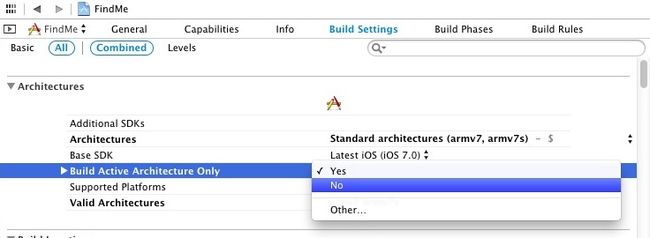- 嵌入式基础篇--了解和搭建开发环境
雯宝
microsoft
文章目录1.开发环境搭建2.LinuxC编程入门3.ARMV7和ARMV8架构4.ARM汇编5.BSP工程管理1.开发环境搭建1.虚拟机Vmware的安装:在PC主机下安装Linux系统,方便切换windows和Linux系统2.在虚拟机Vmware中安装Ubuntu操作系统:便于基于Linux系统的开发3.Ubuntu交叉编译工具链安装4.SourceInsight安装:用于在Windows下代
- Neural Architecture Search (NAS) 原理和应用
weixin_58349913
python
NeuralArchitectureSearch(NAS)原理和应用NeuralArchitectureSearch(NAS)是一种自动化设计神经网络架构的技术。它通过搜索空间中的不同架构配置来找到最优或接近最优的神经网络结构,从而减少人工设计网络结构的工作量。NAS的目标是通过自动化的方式获得比手工设计更高效、准确的模型架构,特别适用于对网络架构要求较高的任务。1.NAS的基本原理NAS的核心思
- 模型压缩与优化技术——神经架构搜索(Neural Architecture Search, NAS)
DuHz
轻量化模型机器学习计算机视觉人工智能神经网络深度学习数据挖掘语音识别
模型压缩与优化技术中的神经架构搜索(NeuralArchitectureSearch,NAS)技术1.引言在深度学习领域,神经网络的架构设计对模型的性能至关重要。传统的手动设计网络架构的过程费时费力,且通常依赖于经验和直觉。为了提升效率与效果,神经架构搜索(NeuralArchitectureSearch,NAS)作为一种自动化的方法,能够通过算法寻找和优化最佳的神经网络架构。NAS可以在图像识别
- 微服务架构对IT市场的影响及可能出现的商业模式
自由鬼
IT应用探讨行业发展架构微服务云原生
随着技术的不断发展,企业对IT架构的需求不断发生变化,微服务架构(MicroservicesArchitecture)作为一种新兴的架构模式,正在引领企业IT构建的革命性变化。尤其在私有云模式下,微服务架构提供了灵活性、安全性以及定制化解决方案,这对IT行业以及商业模式的演变具有深远影响。一、微服务架构的核心优势微服务架构通过将传统单体应用拆分成一系列独立且小型的服务,使得每个服务都可以独立开发、
- ARM Cortex-M4 CPU指令大全:作用、原理与实例
TheJustice_
ARM微机原理arm开发
引言在计算机系统中,CPU(中央处理器)是执行各种指令的核心部件。ARMCortex-M4是广泛应用于嵌入式系统中的一款处理器,其指令集架构(ISA)基于ARMv7-M。本文将介绍ARMCortex-M4处理器中的常见指令,包括它们的作用、工作原理,并通过具体例子帮助理解。1.数据传输指令1.1MOV作用:将数据从一个位置传输到另一个位置。原理:MOV指令复制数据,不改变数据源,只是在目标位置存储
- SOA概览
qin87
webservicesoaweb服务文档xml服务器weblogic
最近半年以来,在企业级应用开发领域,谈论最多的一个词,恐怕非SOA(Service-OrientedArchitecture,面向服务架构)莫属。那么SOA究竟拥有什么样的魔力,能够让众多的软件厂商对他趋之若骛,掀起新的一轮企业架构浪潮。让我们在本文中一探SOA的究竟。那么什么是SOA,让我们先从基本概念开始讲起。什么是SOA?SOA是一种架构模型,它可以根据需求通过网络对松散耦合的粗粒度应用组件
- 探秘ARMv7-M架构:打造高效嵌入式系统指南
嵇影钰
探秘ARMv7-M架构:打造高效嵌入式系统指南【下载地址】ARMv7-M架构参考手册及应用指南分享本资源包包含:-**ARMv7-MArchitectureReferenceManual**:这是ARM官方发布的权威文档,全面深入地介绍了ARMv7-M架构的核心概念、指令集、内存模型和编程模型等,是开发高性能、低功耗嵌入式系统的理论基础。-**ARMv7-MApplicationLevelRefe
- ARM架构参考手册(ARMv7-A和ARMv7-R版)
童伶影Bertha
ARM架构参考手册(ARMv7-A和ARMv7-R版)【下载地址】ARM架构参考手册ARMv7-A和ARMv7-R版分享ARMv7-A和ARMv7-R架构是ARM处理器家族中的关键成员,广泛应用于智能手机、嵌入式系统、汽车电子和实时操作系统等领域的高性能计算设备中。A系列面向应用程序处理器,支持丰富的操作系统如Android和Linux;而R系列则专为实时系统设计,保证了高可靠性和响应速度项目地址
- NVIDIA DPU — DOCA — Overview
范桂飓
软硬件融合加速技术专栏正则表达式服务器运维
目录文章目录目录DOCADOCA的软件架构DOCA的部署架构DOCA的零信任安全框架DOCA的开发周期DOCA早在2020年GTC大会上,英伟达发布了BlueField-2DPU,与之一同发布了DOCA1.0。DOCA(Data-CenterInfrastructureonaChipArchitecture,集数据中心功能于芯片的架构)是一个抽象的层,简化了API的调用。开发者可以直接使用底层的D
- ARMv7-M架构参考手册及应用指南
董鉴勃
ARMv7-M架构参考手册及应用指南【下载地址】ARMv7-M架构参考手册及应用指南分享本资源包包含:-**ARMv7-MArchitectureReferenceManual**:这是ARM官方发布的权威文档,全面深入地介绍了ARMv7-M架构的核心概念、指令集、内存模型和编程模型等,是开发高性能、低功耗嵌入式系统的理论基础。-**ARMv7-MApplicationLevelReference
- 【GIC400】——GIC 简介
tyustyu
ARM体系结构与编程GICPPISGISPICPUinterface
文章目录GIC简介控制器总览GIC中断分类SPIPPISGI中断IDGIC逻辑分块分发器端(distributor)CPU接口端(CPUinterface)寄存器定义参考系列文章【ARMv7-A】——异常与中断【ARMv7-A】——异常中断处理概述【ARMv7-A】——进入和退出异常中断的过程【GIC400】——PLIC,NVIC和GIC中断对比【GIC400】——GIC简介【GIC400】——G
- 手写JS高阶组件
执念一分
jsjavascript
map()Array.prototype.map=function(callback,arg){if(this==='null'){thrownewTypeError("cannotreadproperty'map'ifnull")}if(this==='undefined'){thrownewTypeError("cannotreadproperty'map'ifundefined")}if(O
- react - Ant Design Pro 报错Warning: React.createElement: type is invalid – expected a string (for buil
街尾杂货店&
前端常见问题解决前端组件与功能(开箱即用)reactantdesignpro创建全局组件时报错怎么解决组件引入导出报错解决浏览器控制台出现一片报错React.createEletypeisinvalid
报错问题在react+antdesignpro项目开发中,浏览器控制台出现报错:Warning:React.createElement:typeisinvalid–expectedastring(forbuilt-incomponents)oraclass/function(forcompositecomponents)butgot:undefined.Youlikelyforgottoexpor
- [287]python获取操作系统平台、版本及架构
周小董
Python前行者
platform模块提供了底层系统平台的相关信息系统架构32位还是64位>>>importplatform>>>platform.architecture()('64bit','ELF')#python3.3.2+64bitsondebianjessie64bits('32bit','WindowsPE')#python3.3.232bitsonwindows8.164bits('64bit','
- 最全复习嵌入式STM32知识点总结
One Kb
STM32入门基础stm32嵌入式硬件单片机
STM32F103系列STM32:芯片系列F:芯片类型103:芯片子系列R:引脚数目B:FLASH容量T:封装信息6:工作温度范围STM32:系统内核小、专用性强、系统精简Lx系列:低功耗F0/1/3系列:均衡型F2/4/7系列:高性能ARMCortex-M3处理器系列基于ARMv7架构的产品STM32F103ZET6有7个端口(A、B、C、D、E、F、G),每个端口16个引脚(0~15)采用哈佛
- windows 10 32bit 配置Python编程环境
wangbingfeng0
toolsmaintenance
确认系统架构点击桌面左下角的搜索按钮,输入cmd运行命令行界面(CommandPrompt);在命令行界面输入wmicCPUgetDataWidth↩︎,返回的是CPU的架构,64或32位;在命令行界面输入wmicOSgetOSArchitecture↩︎,返回的是Windows操作系统架构,64或32位。确认PowerShell版本PowerShell是Windows下的增强命令行环境,也是我们
- 深入解析CANN算子开发:TBE与AI CPU算子类型及其开发方法全指南
快撑死的鱼
华为昇腾AscendC的算子开发系统学习人工智能
深入解析CANN算子开发:TBE与AICPU算子类型及其开发方法全指南在现代AI计算领域中,高效的算子开发对于优化深度学习模型的推理与训练至关重要。CANN(ComputeArchitectureforNeuralNetworks)作为华为AscendAI处理器的开发平台,提供了两种类型的算子开发支持:TBE算子和AICPU算子。每种算子类型针对不同的计算任务和硬件架构,开发者需要根据具体场景选择
- 物联网:全面概述、架构、应用、仿真工具、挑战和未来方向
神一样的老师
论文阅读分享物联网物联网
中文论文标题:物联网:全面概述、架构、应用、仿真工具、挑战和未来方向英文论文标题:InternetofThings:acomprehensiveoverview,architectures,applications,simulationtools,challengesandfuturedirections作者信息:AnitaChoudhary论文出处:DiscoverInternetofThing
- 百万架构师第二十四课:漫谈分布式架构:分布式架构设计|JavaGuide
后端
主流架构模型-SOA架构和微服务架构领域驱动设计及业务驱动划分。分布式架构的基本理论CAP、BASE以及应用什么是分布式架构下的高可用设计分布式架构下的可伸缩设计构建高性能的分布式架构SOA架构和微服务架构ServiceOrientedArchitecture面向服务的架构,是架构模型,不是解决方案,是一种设计方法在这种方法下,有多个服务,而服务之间是相互依赖的或者通过一定的通讯机制去完成通讯的。
- Android Kotlin MVP 架构项目教程
常樱沙Vigour
AndroidKotlinMVP架构项目教程android-kotlin-mvp-architectureThisrepositorycontainsadetailedsampleappthatimplementsMVParchitectureinKotlinusingDagger2,Room,RxJava2,FastAndroidNetworkingandPlaceholderView项目地址:
- 设计微服务的过程
Ethan3014
微服务每天一篇技术博客微服务java服务器
原文:https://microservices.io/post/architecture/2023/02/09/assemblage-architecture-definition-process.html文章目录OverviewofAssemblageStep1:DiscoveringsystemoperationsStep2:DefiningsubdomainsStep3:Designing
- 使用 PyTorch 从头开始构建您自己的 Llama 3 架构
子然在打码
pytorchllama人工智能
https://www.aisolink.com/build-your-own-llama-3-architecture-from-scratch-using-pytorch全文摘要本文提供了一个详细的指南,介绍如何使用PyTorch从头开始构建Llama3模型的完整架构,并对自定义数据集进行训练和推理。文章涵盖了构建输入块、解码器块和输出块的步骤,并提供了相应的代码示例。最终目标是构建一个功能齐
- ASP.NET Core Web API 模板项目推荐
余怡桔Solomon
ASP.NETCoreWebAPI模板项目推荐aspnetcore-webapi-templateThisprojectisanWebAPIOpen-SourceBoilerplateTemplatethatincludesASP.NETCore5,WebAPIstandards,cleann-tierarchitecture,GraphQLservice,Redis,Mssql,Mongodat
- JavaScript的那些不可不知的知识
遇见~未来
JavaScriptjavascript开发语言ecmascript
目录JavaScript基础JavaScript高级JavaScript基础数据类型:JavaScript的数据类型分为基本数据类型和引用数据类型。基本数据类型包含number(数字)、string(字符串)、boolean(布尔值)、null(空值)、undefined(未定义)。而像array(数组)、function(函数)等则属于引用数据类型。在内存存储方面,基本类型是按值存储在栈中,引用
- ASP.NET Core N-Tier 架构 Web API 项目教程
蓬为宜
ASP.NETCoreN-Tier架构WebAPI项目教程aspnetcore.ntier.NETCoreN-TierarchitectureWebApisampleproject.项目地址:https://gitcode.com/gh_mirrors/as/aspnetcore.ntier项目介绍ASP.NETCoreN-Tier架构WebAPI项目是一个示例项目,展示了如何使用ASP.NETC
- 亚马逊CloudFront:一次一个HTTP请求提升网络性能
AI航海家
AWS
亚马逊CloudFront:一次一个HTTP请求提升网络性能关键字:[AmazonWebServicesre:Invent2024,亚马逊云科技,生成式AI,CloudFront,HttpRequestPerformance,CloudfrontDnsRouting,EdgeCachingArchitecture,ServerlessEdgeCompute,OriginSecurity]导读无论您
- 为AI聊天工具添加一个知识系统 之54 为事务处理 设计 基于DDD的一个 AI操作系统 来处理维度
一水鉴天
人工语言软件智能智能制造大数据开发语言
本文要点要点Architecture程序它被设计为一个双面神结构的控制器,它的两侧一侧编译执行另一侧解释执行,自已则是一个翻译器--通过提供两个不同取向之间的结构映射的显示器(带图形用户接口GUI和命令行接口CLI两种接口)。一个Architecture模型(表面模型接口类)一个Architecture模型采用“本”“迹”二分法,对应一个html模板。该模板中提供三个动态区划>>>代表html占位
- 第三方库的编译
weixin_30369041
c/c++
ACE的编译问题ACE链接时碰到下面一大堆错误:client-SSL-client.o:Infunction`ACE_SSL_SOCK_Stream::close()':../../../../ace/SSL/SSL_SOCK_Stream.i:278:undefinedreferenceto`SSL_shutdown'../../../../ace/SSL/SSL_SOCK_Stream.i:2
- 【黑马-SpringCloudAlibaba】学习笔记10-Seata:实现分布式事务控制
言谶
分布式学习java
Seata介绍2019年1月,阿里巴巴中间件团队发起了开源项目Fescar(Fast&EaSyCommitAndRollback),其愿景是让分布式事务的使用像本地事务的使用一样,简单和高效,并逐步解决开发者们遇到的分布式事务方面的所有难题。后来更名为Seata,意为:SimpleExtensibleAutonomousTransactionArchitecture,是一套分布式事务解决方案。Se
- WEB2.0网站构架分析
kaka_sun
参考文档webmyspace数据库数据库服务器服务器youtube
FovWeb拓展你我的视野,关注互联网和网站相关技术与运营。FROM:http://www.fovweb.com/optimizer/web20-site-architecture-analysis/一、web2.0网站常用可用性功能模块分析Web2.0网站是指将传统的网站构架(平台、内容源、用户、传播方式等)转化到以用户为核心的网站构架上来,包括一系列体现web2.0概念的元素、定位和创意。we
- rust的指针作为函数返回值是直接传递,还是先销毁后创建?
wudixiaotie
返回值
这是我自己想到的问题,结果去知呼提问,还没等别人回答, 我自己就想到方法实验了。。
fn main() {
let mut a = 34;
println!("a's addr:{:p}", &a);
let p = &mut a;
println!("p's addr:{:p}", &a
- java编程思想 -- 数据的初始化
百合不是茶
java数据的初始化
1.使用构造器确保数据初始化
/*
*在ReckInitDemo类中创建Reck的对象
*/
public class ReckInitDemo {
public static void main(String[] args) {
//创建Reck对象
new Reck();
}
}
- [航天与宇宙]为什么发射和回收航天器有档期
comsci
地球的大气层中有一个时空屏蔽层,这个层次会不定时的出现,如果该时空屏蔽层出现,那么将导致外层空间进入的任何物体被摧毁,而从地面发射到太空的飞船也将被摧毁...
所以,航天发射和飞船回收都需要等待这个时空屏蔽层消失之后,再进行
&
- linux下批量替换文件内容
商人shang
linux替换
1、网络上现成的资料
格式: sed -i "s/查找字段/替换字段/g" `grep 查找字段 -rl 路径`
linux sed 批量替换多个文件中的字符串
sed -i "s/oldstring/newstring/g" `grep oldstring -rl yourdir`
例如:替换/home下所有文件中的www.admi
- 网页在线天气预报
oloz
天气预报
网页在线调用天气预报
<%@ page language="java" contentType="text/html; charset=utf-8"
pageEncoding="utf-8"%>
<!DOCTYPE html PUBLIC "-//W3C//DTD HTML 4.01 Transit
- SpringMVC和Struts2比较
杨白白
springMVC
1. 入口
spring mvc的入口是servlet,而struts2是filter(这里要指出,filter和servlet是不同的。以前认为filter是servlet的一种特殊),这样就导致了二者的机制不同,这里就牵涉到servlet和filter的区别了。
参见:http://blog.csdn.net/zs15932616453/article/details/8832343
2
- refuse copy, lazy girl!
小桔子
copy
妹妹坐船头啊啊啊啊!都打算一点点琢磨呢。文字编辑也写了基本功能了。。今天查资料,结果查到了人家写得完完整整的。我清楚的认识到:
1.那是我自己觉得写不出的高度
2.如果直接拿来用,很快就能解决问题
3.然后就是抄咩~~
4.肿么可以这样子,都不想写了今儿个,留着作参考吧!拒绝大抄特抄,慢慢一点点写!
- apache与php整合
aichenglong
php apache web
一 apache web服务器
1 apeche web服务器的安装
1)下载Apache web服务器
2)配置域名(如果需要使用要在DNS上注册)
3)测试安装访问http://localhost/验证是否安装成功
2 apache管理
1)service.msc进行图形化管理
2)命令管理,配
- Maven常用内置变量
AILIKES
maven
Built-in properties
${basedir} represents the directory containing pom.xml
${version} equivalent to ${project.version} (deprecated: ${pom.version})
Pom/Project properties
Al
- java的类和对象
百合不是茶
JAVA面向对象 类 对象
java中的类:
java是面向对象的语言,解决问题的核心就是将问题看成是一个类,使用类来解决
java使用 class 类名 来创建类 ,在Java中类名要求和构造方法,Java的文件名是一样的
创建一个A类:
class A{
}
java中的类:将某两个事物有联系的属性包装在一个类中,再通
- JS控制页面输入框为只读
bijian1013
JavaScript
在WEB应用开发当中,增、删除、改、查功能必不可少,为了减少以后维护的工作量,我们一般都只做一份页面,通过传入的参数控制其是新增、修改或者查看。而修改时需将待修改的信息从后台取到并显示出来,实际上就是查看的过程,唯一的区别是修改时,页面上所有的信息能修改,而查看页面上的信息不能修改。因此完全可以将其合并,但通过前端JS将查看页面的所有信息控制为只读,在信息量非常大时,就比较麻烦。
- AngularJS与服务器交互
bijian1013
JavaScriptAngularJS$http
对于AJAX应用(使用XMLHttpRequests)来说,向服务器发起请求的传统方式是:获取一个XMLHttpRequest对象的引用、发起请求、读取响应、检查状态码,最后处理服务端的响应。整个过程示例如下:
var xmlhttp = new XMLHttpRequest();
xmlhttp.onreadystatechange
- [Maven学习笔记八]Maven常用插件应用
bit1129
maven
常用插件及其用法位于:http://maven.apache.org/plugins/
1. Jetty server plugin
2. Dependency copy plugin
3. Surefire Test plugin
4. Uber jar plugin
1. Jetty Pl
- 【Hive六】Hive用户自定义函数(UDF)
bit1129
自定义函数
1. 什么是Hive UDF
Hive是基于Hadoop中的MapReduce,提供HQL查询的数据仓库。Hive是一个很开放的系统,很多内容都支持用户定制,包括:
文件格式:Text File,Sequence File
内存中的数据格式: Java Integer/String, Hadoop IntWritable/Text
用户提供的 map/reduce 脚本:不管什么
- 杀掉nginx进程后丢失nginx.pid,如何重新启动nginx
ronin47
nginx 重启 pid丢失
nginx进程被意外关闭,使用nginx -s reload重启时报如下错误:nginx: [error] open() “/var/run/nginx.pid” failed (2: No such file or directory)这是因为nginx进程被杀死后pid丢失了,下一次再开启nginx -s reload时无法启动解决办法:nginx -s reload 只是用来告诉运行中的ng
- UI设计中我们为什么需要设计动效
brotherlamp
UIui教程ui视频ui资料ui自学
随着国际大品牌苹果和谷歌的引领,最近越来越多的国内公司开始关注动效设计了,越来越多的团队已经意识到动效在产品用户体验中的重要性了,更多的UI设计师们也开始投身动效设计领域。
但是说到底,我们到底为什么需要动效设计?或者说我们到底需要什么样的动效?做动效设计也有段时间了,于是尝试用一些案例,从产品本身出发来说说我所思考的动效设计。
一、加强体验舒适度
嗯,就是让用户更加爽更加爽的用你的产品。
- Spring中JdbcDaoSupport的DataSource注入问题
bylijinnan
javaspring
参考以下两篇文章:
http://www.mkyong.com/spring/spring-jdbctemplate-jdbcdaosupport-examples/
http://stackoverflow.com/questions/4762229/spring-ldap-invoking-setter-methods-in-beans-configuration
Sprin
- 数据库连接池的工作原理
chicony
数据库连接池
随着信息技术的高速发展与广泛应用,数据库技术在信息技术领域中的位置越来越重要,尤其是网络应用和电子商务的迅速发展,都需要数据库技术支持动 态Web站点的运行,而传统的开发模式是:首先在主程序(如Servlet、Beans)中建立数据库连接;然后进行SQL操作,对数据库中的对象进行查 询、修改和删除等操作;最后断开数据库连接。使用这种开发模式,对
- java 关键字
CrazyMizzz
java
关键字是事先定义的,有特别意义的标识符,有时又叫保留字。对于保留字,用户只能按照系统规定的方式使用,不能自行定义。
Java中的关键字按功能主要可以分为以下几类:
(1)访问修饰符
public,private,protected
p
- Hive中的排序语法
daizj
排序hiveorder byDISTRIBUTE BYsort by
Hive中的排序语法 2014.06.22 ORDER BY
hive中的ORDER BY语句和关系数据库中的sql语法相似。他会对查询结果做全局排序,这意味着所有的数据会传送到一个Reduce任务上,这样会导致在大数量的情况下,花费大量时间。
与数据库中 ORDER BY 的区别在于在hive.mapred.mode = strict模式下,必须指定 limit 否则执行会报错。
- 单态设计模式
dcj3sjt126com
设计模式
单例模式(Singleton)用于为一个类生成一个唯一的对象。最常用的地方是数据库连接。 使用单例模式生成一个对象后,该对象可以被其它众多对象所使用。
<?phpclass Example{ // 保存类实例在此属性中 private static&
- svn locked
dcj3sjt126com
Lock
post-commit hook failed (exit code 1) with output:
svn: E155004: Working copy 'D:\xx\xxx' locked
svn: E200031: sqlite: attempt to write a readonly database
svn: E200031: sqlite: attempt to write a
- ARM寄存器学习
e200702084
数据结构C++cC#F#
无论是学习哪一种处理器,首先需要明确的就是这种处理器的寄存器以及工作模式。
ARM有37个寄存器,其中31个通用寄存器,6个状态寄存器。
1、不分组寄存器(R0-R7)
不分组也就是说说,在所有的处理器模式下指的都时同一物理寄存器。在异常中断造成处理器模式切换时,由于不同的处理器模式使用一个名字相同的物理寄存器,就是
- 常用编码资料
gengzg
编码
List<UserInfo> list=GetUserS.GetUserList(11);
String json=JSON.toJSONString(list);
HashMap<Object,Object> hs=new HashMap<Object, Object>();
for(int i=0;i<10;i++)
{
- 进程 vs. 线程
hongtoushizi
线程linux进程
我们介绍了多进程和多线程,这是实现多任务最常用的两种方式。现在,我们来讨论一下这两种方式的优缺点。
首先,要实现多任务,通常我们会设计Master-Worker模式,Master负责分配任务,Worker负责执行任务,因此,多任务环境下,通常是一个Master,多个Worker。
如果用多进程实现Master-Worker,主进程就是Master,其他进程就是Worker。
如果用多线程实现
- Linux定时Job:crontab -e 与 /etc/crontab 的区别
Josh_Persistence
linuxcrontab
一、linux中的crotab中的指定的时间只有5个部分:* * * * *
分别表示:分钟,小时,日,月,星期,具体说来:
第一段 代表分钟 0—59
第二段 代表小时 0—23
第三段 代表日期 1—31
第四段 代表月份 1—12
第五段 代表星期几,0代表星期日 0—6
如:
*/1 * * * * 每分钟执行一次。
*
- KMP算法详解
hm4123660
数据结构C++算法字符串KMP
字符串模式匹配我们相信大家都有遇过,然而我们也习惯用简单匹配法(即Brute-Force算法),其基本思路就是一个个逐一对比下去,这也是我们大家熟知的方法,然而这种算法的效率并不高,但利于理解。
假设主串s="ababcabcacbab",模式串为t="
- 枚举类型的单例模式
zhb8015
单例模式
E.编写一个包含单个元素的枚举类型[极推荐]。代码如下:
public enum MaYun {himself; //定义一个枚举的元素,就代表MaYun的一个实例private String anotherField;MaYun() {//MaYun诞生要做的事情//这个方法也可以去掉。将构造时候需要做的事情放在instance赋值的时候:/** himself = MaYun() {*
- Kafka+Storm+HDFS
ssydxa219
storm
cd /myhome/usr/stormbin/storm nimbus &bin/storm supervisor &bin/storm ui &Kafka+Storm+HDFS整合实践kafka_2.9.2-0.8.1.1.tgzapache-storm-0.9.2-incubating.tar.gzKafka安装配置我们使用3台机器搭建Kafk
- Java获取本地服务器的IP
中华好儿孙
javaWeb获取服务器ip地址
System.out.println("getRequestURL:"+request.getRequestURL());
System.out.println("getLocalAddr:"+request.getLocalAddr());
System.out.println("getLocalPort:&quo


